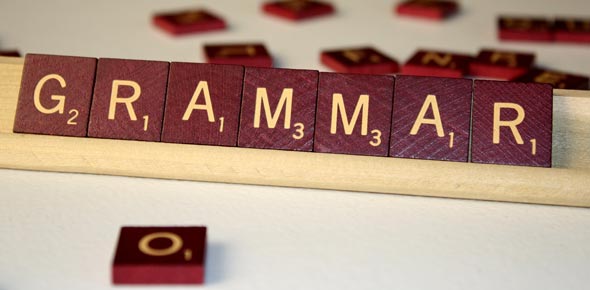Grammar: Question Tags
-
You shouldn't smoke,
-
Are you?
-
Aren't you?
-
Should you?
-
Shouldn't you?
-
At first some multiple choice questions for you to practice question tags. Once you have mastered it, you'll have to write the answers by yourselves.
(160).jpg)
Quiz Preview
- 2.
You can swim well,
-
Can you?
-
Can't you?
-
Do you?
-
Don't you?
Correct Answer
A. Can't you?Explanation
The correct answer is "can't you?" This is because the question is asking for confirmation or agreement with the statement "You can swim well." The phrase "can't you?" is a tag question that is used to seek confirmation or agreement, and it is the appropriate response in this context.Rate this question:
-
- 3.
The winter hasn't been cold,
-
Does it?
-
Doesn't it?
-
Has it?
-
Hasn't it?
Correct Answer
A. Has it?Explanation
The correct answer is "has it?" This is because the question is in the negative form "The winter hasn't been cold," and when we want to make a tag question, we use the auxiliary verb from the main sentence, which in this case is "has." Since the main sentence is negative, the tag question should be in the positive form, hence "has it?"Rate this question:
-
- 4.
You won't be late,
-
Will you?
-
Won't you?
-
Would you?
-
Wouldn't you?
Correct Answer
A. Will you?Explanation
The correct answer is "will you?" because the sentence is a negative question and the correct form to use in negative questions is "will you?" This form is used to ask for confirmation or agreement, implying that the speaker expects the person to not be late. The other options, "won't you?", "would you?", and "wouldn't you?" are incorrect because they do not match the structure and meaning of the sentence.Rate this question:
-
- 5.
John drinks too much,
-
Is he?
-
Isn't he?
-
Does he?
-
Doesn't he?
Correct Answer
A. Doesn't he?Explanation
The correct answer is "doesn't he?" This is because the sentence "John drinks too much" is a statement, and when we want to turn a statement into a question, we use the auxiliary verb "do" in the present tense. Since the subject is "he," we use "doesn't" which is the contraction of "does not" with "he."Rate this question:
-
- 6.
He speaks English well,
-
Do he?
-
Don't he?
-
Does he?
-
Doesn't he?
Correct Answer
A. Doesn't he?Explanation
The correct answer is "doesn't he?" because when using the auxiliary verb "do" to form a question in the third person, we need to use "does" instead of "do". Additionally, since the statement is positive ("He speaks English well"), the question tag should be negative ("doesn't he?") to maintain agreement.Rate this question:
-
- 7.
He has travelled a lot,
-
Does he?
-
Doesn't he?
-
Has he?
-
Hasn't he?
Correct Answer
A. Hasn't he?Explanation
Present perfect sentence. Has is being used as an auxiliary verb.Rate this question:
-
- 8.
I am as fat as you,
-
Am I?
-
Amn't I?
-
Are I?
-
Aren't I?
Correct Answer
A. Aren't I?Explanation
This is the exception! as there isn't a negative contraction for am + not, aren't is used.Rate this question:
-
- 9.
We became good students,
-
Do we?
-
Don't we?
-
Did we?
-
Didn't we?
Correct Answer
A. Didn't we?Explanation
"became" is the past form of the verb "become"Rate this question:
-
- 10.
Boys don't like to wash.
Correct Answer
do they?, Do they?, DO THEY?Explanation
The repetition of "do they?" in increasing volume and emphasis suggests that the speaker is trying to emphasize the fact that boys generally do not like to wash. The repetition serves to reinforce the statement and highlight the speaker's frustration or disbelief at this behavior.Rate this question:
- 11.
I am very stupid,
Correct Answer
aren't I?
Aren't I?
AREN'T I?
aren't i?Explanation
The correct answer is "aren't I?, Aren't I?, AREN'T I?, aren't i?" because these are all different variations of the same question. The question is asking for confirmation or agreement from someone else about the speaker's stupidity. The variations in capitalization and punctuation do not change the meaning of the question.Rate this question:
- 12.
My wife cooks well,
Correct Answer
doesn't she?
Doesn't she?
DOESN'T SHE?Explanation
The correct answer is "doesn't she?, Doesn't she?, DOESN'T SHE?" because the speaker is seeking confirmation or agreement from the listener about the wife's cooking skills. The repetition of the question with increasing intensity suggests a strong expectation for a positive response.Rate this question:
- 13.
I am not stupid,
Correct Answer
am I?
AM I?
Am I?Explanation
The correct answer is "am I?,AM I?,Am I?". The question is asking for the correct punctuation for the repeated phrase "am I?". Each instance of the phrase should be capitalized and followed by a comma, as it is a direct question.Rate this question:
- 14.
You broke the window,
Correct Answer
didn't you?, Didn't you?, DIDN'T YOU?Explanation
The correct answer is "didn't you?, Didn't you?, DIDN'T YOU?" because it shows the increasing intensity of the question being asked. The repetition of the question with increasing capitalization and punctuation emphasizes the speaker's frustration or anger towards the person they are addressing.Rate this question:
- 15.
He has a lot of books,
-
Has he?
-
Hasn't he?
-
Does he?
-
Doesn't he?
Correct Answer
A. Doesn't he?Explanation
Present simple sentence. Have is used as a verb.Rate this question:
-
Quiz Review Timeline (Updated): Apr 9, 2024 +
Our quizzes are rigorously reviewed, monitored and continuously updated by our expert board to maintain accuracy, relevance, and timeliness.
-
Current Version
-
Apr 09, 2024Quiz Edited by
ProProfs Editorial Team -
May 08, 2010Quiz Created by
Orlau87
Question Tag And Yes/No Question
This quiz focuses on enhancing understanding of question tags and yes\/no questions in English grammar. It assesses the ability to correctly form questions based on given...
Questions:
15 |
Attempts:
428 |
Last updated:
Mar 22, 2023
|
English Test: Complete The Sentence Questions! Quiz
This English Test: Complete The Sentence Questions! Quiz assesses the ability to use correct question tags in English sentences. It tests understanding of grammatical structure,...
Questions:
20 |
Attempts:
292 |
Last updated:
Oct 11, 2024
|
student Grade 8"> Question Tags For student Grade 8
This quiz, titled 'Question Tags for student grade 8', assesses students' understanding of English grammar, specifically the use of question tags. It includes various sentences...
Questions:
10 |
Attempts:
3075 |
Last updated:
Nov 29, 2024
|
Question Tags: English Grammar Test! Trivia Quiz
Test your knowledge of English grammar with the 'Question Tags: English Grammar Test! Trivia Quiz'. This quiz assesses your ability to use question tags correctly in sentences,...
Questions:
10 |
Attempts:
447 |
Last updated:
Mar 22, 2023
|
Interesting Quiz About Question Tag
This engaging quiz focuses on mastering question tags in English grammar. It assesses the ability to correctly form question tags, enhancing communication skills and grammatical...
Questions:
5 |
Attempts:
171 |
Last updated:
Mar 18, 2023
|
QUESTION TAGS
Do you know what a question tag is?
You know it well, don't you? Now take this simple test.
Questions:
10 |
Attempts:
3135 |
Last updated:
Mar 22, 2023
|
 Back to top
Back to top





 student
student

